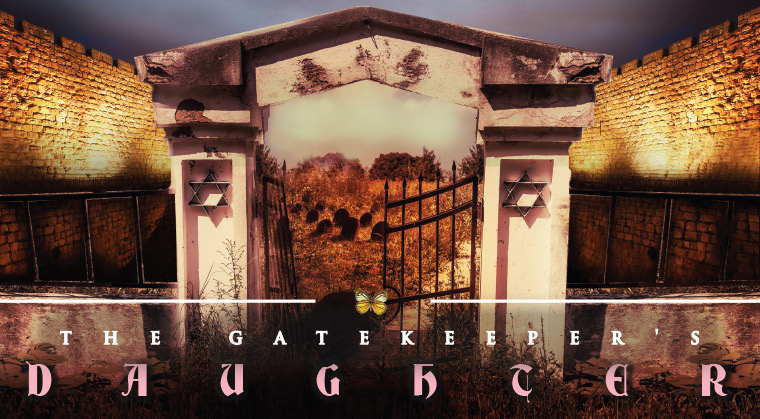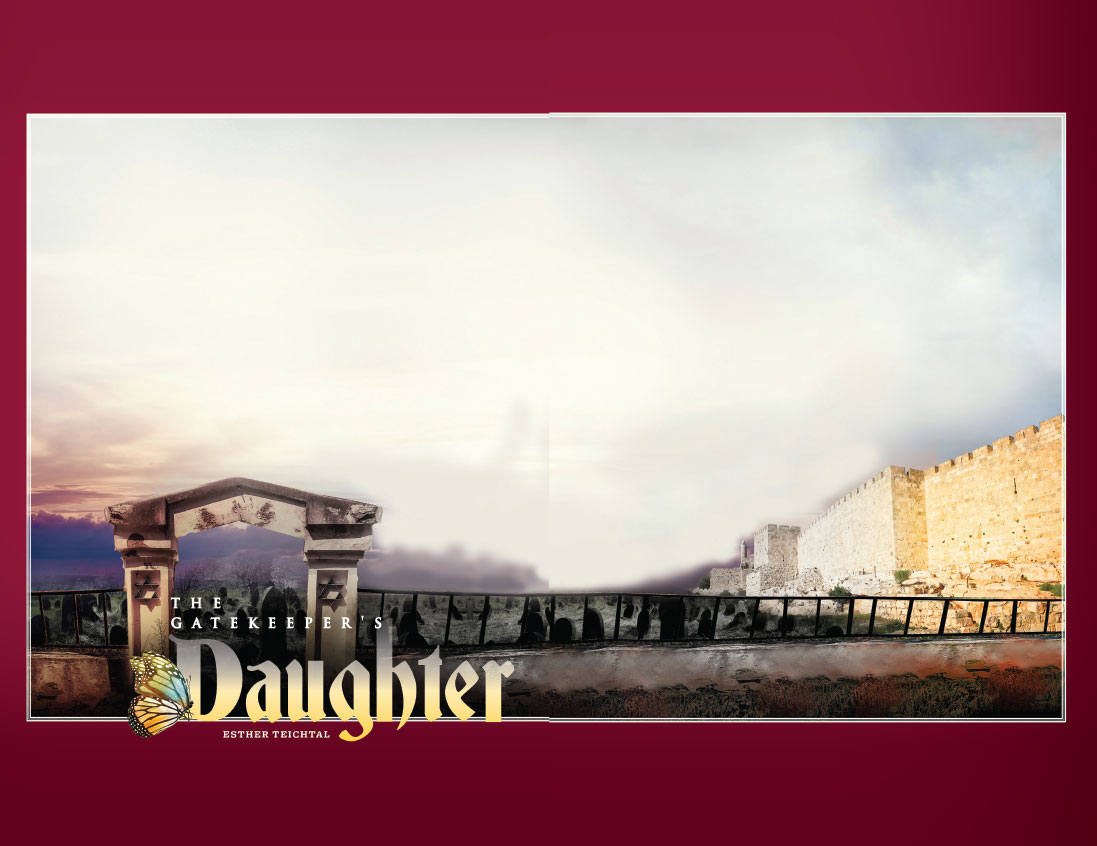The Gatekeeper’s Daughter: Chapter 10


The silver decanter hangs from the gatekeeper’s fingers, catching the muted rays of the twilight sun. Leibel watches, curious, and the Tzaddik’s eyes catch fire.
It is a familiar jug. One of those tiny pitchers one finds attached to a menorah. An object one would hardly think to see in gentile hands. Not for the first time, Leibel wonders what they are doing, treading the muddy grounds of this deserted Jewish wasteland.
“Pach hashemen!” cries the Tzaddik jubilantly. He asks to see the jug up close.
The woman stares blankly, her eyes still swimming from the teary outburst that had taken them by surprise.
“She says she’s Jewish,” Leibel relays the information to the Tzaddik.
He nods, “Yes… yes…” registering little surprise. Instead, he asks again to see the silver object, and Vasara reluctantly lets him have it. The Tzaddik holds it up to the ebbing sunlight and examines it closely, as if looking for some faint reassurance. Then he cups it in his palm and closes his eyes, deep in thought.
Leibel shivers. Evening approaches, and the graves will soon be blanketed in night. A string of hoots comes at them from overhead. Vasara fidgets and repeats herself, almost in a whisper: “I Žydas …!”
“How?” asks the Tzaddik, and he nods gently to Vasara. He lays a hand on Leibel’s shoulder. “Ask her to explain.”
Leibel blinks. His English is rudimentary at the best of times. Right now, his tongue is stunned into silence. He feels like throwing her a flippant reply. “Seriously? Azoi..?” But the Tzaddik isn’t joking.
Instead, he fields the Tzaddik’s questions, teasing the truth out of her, one whisper at a time, ignoring the chill and the fiery orange highlights of the sinking sun.
Somehow, Vasara gets her points across. Leibel relays the information in growing astonishment.
“No. Zenia no Žydas.” That must be the white-haired woman who was here in the past. “But she no my mother. Real mother is a Žydas.”
“You sure?” asks Leibel, wondering how much to believe.
“Yes. Taip. I know. I sure.”
But when he asks, she can give him no names. Confusion wafts off her. The daughter of a nameless Jewish couple. Shadowy people. Shadowy truths. And yet, from the depths of her shattered identity, two darkly beseeching eyes tell a different kind of truth. A soul truth. An eternal one.
Again, she says, almost begs: “I Žydas …!” Slowly, her various woes unfold. No home. No money. Mother and daughter with nowhere to go.
The Tzaddik shakes his head in sympathy and sighs. “Tell her we will return. And we will do whatever we can to help.”
When they finally walk out through the creaking gate, leaving the subdued woman to lock up behind them, the questions loom larger than ever. But the Tzaddik is unfazed.
“We must bring them to Eretz Yisrael.” His eyes sear the darkness.
“Whaa… What?”
The Tzaddik clutches Leibel’s hand. “Especially the daughter, Leibel. We can help her more in Eretz Yisrael. Your family, maybe, could help them?”
Leibel tugs at his collar. The evening air is as biting as ever, yet he can’t seem to catch his breath.
The Tzaddik isn’t oblivious to his unease, but he isn’t letting go. “Think about it. Ask at home. You don’t need to decide right now.”
(Excerpted from Family First, Issue 614)
Oops! We could not locate your form.



